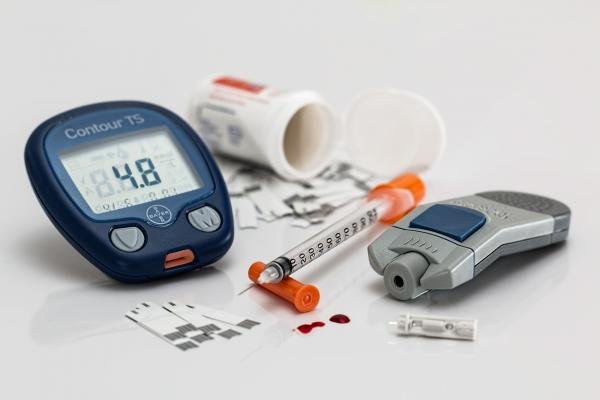New study led by Livongo demonstrates that personalization is key to diabetes management and short periods of intensive coaching when people get stuck on their way to their glucose and weight goals can be helpful.
A new study reveals that use of Livongo for Diabetes significantly improves the health of people with type 2 diabetes (T2D), according to recent findings reported in the Journal of Diabetes Research. Researchers also found pairing participation in Livongo for Diabetes with lifestyle coaching empowers individuals to lose weight and further improve their blood glucose. This study demonstrates that personalization is key to diabetes management and short periods of intensive coaching when people get stuck on their way to their glucose and weight goals can be helpful.
Study Background/Overview
In the USA, 1 in 11 people have diabetes, costing the healthcare system more than $150 billion annually. For these individuals, maintaining blood glucose in the normal range (80–180 mg/dL) is a critical part of reducing emergency department visits, hospitalizations, renal failure and other costly complications of diabetes. Weight management also is vital to the health of people with T2D, many of whom find weight loss in the setting of insulin and other glucose-lowering medications to be difficult and struggle to get their BMI (Body Mass Index) to goal.
Use of Livongo for Diabetes has been proven in earlier studies to help people become healthier. For this investigation, researchers examined if lifestyle coaching could help people with T2D who had hit a plateau on their way toward their health goals. The study evaluated 330 eligible participants with T2D who used Livongo for Diabetes for at least 80 days between October 2014, and February 2016. Participants had a BMI ≥ 25 but had not yet achieved their target level of glucose control (estimated HbA1c < 6.5%).
Researchers randomized study participants into one of three groups: Livongo for Diabetes plus a connected scale (n=115), Livongo for Diabetes plus a connected scale and 12 weeks of lightweight lifestyle coaching (n=73), or Livongo for Diabetes plus a connected scale and 12 weeks of intensive lifestyle coaching (n=67). A control group (n=75) without any further intervention also was followed. All lifestyle coaching included guidance in the areas of nutrition, exercise, sleep, and stress. The primary study outcome was glucose control as measured by estimated A1c. Other outcomes assessed included weight, mean blood glucose and cost-effectiveness of the interventions.
Key Findings/Results
Specifically, researchers found that use of Livongo for Diabetes alone improved blood glucose control for people with T2D with a decrease in mean estimated HbA1c (eA1c) from 8.5% to 7.5% (p=0.01). Study participants also experienced clinically meaningful improvement in their sense of empowerment and well-being about managing their diabetes as well — factors correlated with successful long-term management of the condition.
The group receiving the most intensive coaching (average of 4 coaching interactions per week) experienced the greatest weight loss over the 12-week intervention period (mean weight loss of 9.7 lbs and mean eA1c reduction of 0.7%, which tracks average blood glucose and HbA1c estimation in real time). Lightweight coaching (average of 0.8 coaching interactions per week) had less of a clinical impact (mean weight loss of 4.1lbs. and mean eA1c reduction of 0.4%). Blood glucose improvement was most pronounced in study participants with higher mean blood glucose levels at the start of the intervention (177 ± 52 mg/dL at start versus 139 ± 26 mg/dL at end, p=0.001).
“Personalization is key to diabetes management,” said Dr. Jennifer Bollyky, the lead author of the study, head of Clinical Research at Livongo, and a physician with Stanford Health Care. “For most people, living with diabetes is a life-long journey. This study demonstrates that short periods of intensive coaching when people get stuck on their way to their glucose and weight goals can be empowering and helpful.”
“This study also adds to the growing body of evidence supporting the broad use of Livongo for Diabetes for people living with the condition, reaffirming earlier positive findings that its use results in sustained improvement in glucose control by reducing HbA1c without increasing rates of hypoglycemia,” Dr. Bollyky added.
Researchers say the next step is to better understand the key elements of the coaching program most associated with improvements in weight and glucose control, so those elements can be provided cost-effectively to the people with diabetes most likely to benefit from them.
References
1. Łuczyński W, Głowińska-Olszewska B, Bossowski A. Empowerment in the Treatment of Diabetes and Obesity. Journal of Diabetes Research. 2016;2016:5671492. doi:10.1155/2016/5671492.
2. A. Menke, S. Casagrande, L. Geiss, and C. C. Cowie, “Prevalence of and trends in diabetes among adults in the United States, 1988-2012,” JAMA, vol. 314, no. 10, pp. 1021–1029, 2015.
3. American Diabetes Association, “Economic costs of diabetes in the U.S. in 2012,” Diabetes care, vol. 36, no. 4, pp. 1033–1046, 2013.
4. C. W. Hunt, “Technology and diabetes self-management: an integrative review,” World Journal of Diabetes, vol. 6, no. 2, pp. 225–233, 2015.
5. American Diabetes Association, “Standards of medical care in diabetes—2015: summary of revisions,” Diabetes Care, vol. 38, Supplement 1, pp. S4–S4, 2015.
6. R. Ziegler, B. Heidtmann, D. Hilgard et al., “Frequency of SMBG correlates with HbA1c and acute complications in children and adolescents with type 1 diabetes,” Pediatric Diabetes, vol. 12, no. 1, pp. 11–17, 2011.
- S. Allemann, C. Houriet, P. Diem, and C. Stettler, “Self-monitoring of blood glucose in non-insulin treated patients with type 2 diabetes: a systematic review and meta-analysis,” Current Medical Research and Opinion, vol. 25, no. 12, pp. 2903–2913, 2009.
- Downing J, Bollyky J, Schneider J. Use of a Connected Glucose Meter and Certified Diabetes Educator Coaching to Decrease the Likelihood of Abnormal Blood Glucose Excursions: The Livongo for Diabetes Program. Moorhead A, ed. Journal of Medical Internet Research. 2017; 19(7):e234. doi:10.2196/jmir.6659.

